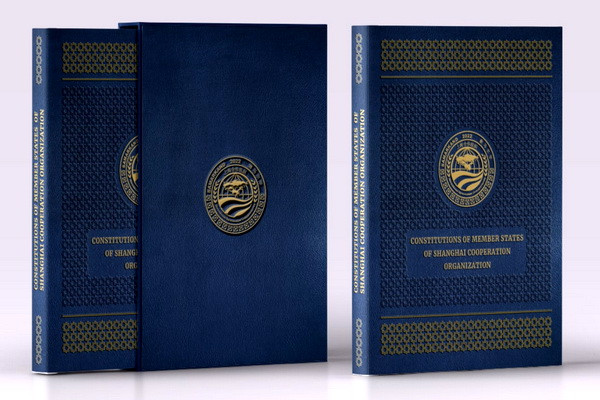
New edition on the eve of the Samarkand SCO summit
Tashkent, Uzbekistan (UzDaily.com) -- The summit of the Shanghai Cooperation Organization us taking place in Samarkand on 15-16 September.
The Shanghai Cooperation Organization, which has united a vast geographical area and about half of the population of our planet, has made a rapid leap from the format of a consultative mechanism to a full-scale interstate association. This was facilitated by such key SCO instruments as equality and consensus, civilizational and cultural diversity, as well as respect for the sovereignty of all participants.
Over the past twenty years, the international community has witnessed tremendous changes in the activities of the world’s largest regional organization. In the pearl of the Great Silk Road - Samarkand - a number of important conceptual documents are expected to be adopted, in particular, the Samarkand Declaration of the Heads of State - members of the SCO, which, based on the principles of the "Shanghai Spirit", will open a new milestone in the evolutionary development of the SCO in the geographical space and international scale.
The article of the President of Uzbekistan Shavkat Mirziyoyev “Samarkand SCO Summit: Dialogue and Cooperation in an Interconnected World” rightly emphasizes that “there is only one way out of the dangerous spiral of problems in the interconnected world in which we live today - through constructive dialogue and multilateral cooperation based on taking into account and respecting the interests of everyone... Effective international cooperation makes the world more stable, predictable and prosperous”.
Historically, Samarkand has been a "melting pot of ideas and knowledge", a crossroads of cultures and civilizations. And today, all this makes it the most suitable and sought-after platform for joint discussion, search and agreement on the right answers to regional and global challenges. "Samarkand Spirit" unites for convening and is aimed at promoting the most important international and diplomatic initiatives of our country.
In the modern diplomacy of New Uzbekistan, Samarkand has acquired a special dimension, as evidenced by the holding of such large-scale global forums as the international conference "Central Asia: one past and a common future, cooperation for sustainable development and mutual prosperity" (2017), the Asian Forum for Human Rights ( 2018), Samarkand Human Rights Forum (2020), and others.
A new edition of the "Constitutions of the Member States of the Shanghai Cooperation Organization" edited by academician Akmal Saidov is timed to coincide with the upcoming SCO summit in Samarkand.
The collection of constitutions, prepared by the National Center of the Republic of Uzbekistan for Human Rights, was published at a high printing level by the Tasvir publishing house in hardcover in the official languages of the SCO. The book contains the constitutions of the member states of the Shanghai Cooperation Organization: the People’s Republic of China, the Russian Federation, Kazakhstan, Kyrgyzstan, Tajikistan, Uzbekistan, India and Pakistan.
The publication provides an opportunity to get acquainted with all aspects of the development of constitutionalism in the SCO space. As noted in the collection, one should not forget that the SCO is a promising platform for strengthening inter-civilizational dialogue and cultural and humanitarian cooperation.
Also important is the practical implementation of the "Shanghai Spirit" through the tools of public diplomacy, tourism, strengthening friendship and good neighborliness, new cultural and humanitarian initiatives, enriching the agenda of the SCO by promoting new formats of cooperation in such promising areas as information and communication technologies, reducing poverty, plant quarantine, strengthening the global profile of the SCO and expanding its international relations.
The book notes that the constitutional development of the SCO space is characterized by a certain commonality. In particular, the dynamic development of the constitutions of the countries - members of the organization, fixing in them such foundations of the constitutional system as democracy, the republican form of government, the social and secular nature of the state, the priority of human rights and freedoms, the separation of powers, the plurality and equality of forms of ownership, territorial integrity.
It should be noted that the texts of the constitutions of all SCO member countries are published for the first time in one collection, which reveals the constitutional identity of each country, demonstrates evolutionary development and constitutional and legal pluralism in the SCO space.
During the constitutional reform in Uzbekistan, much attention is paid to the study of the constitutional experience of the SCO countries. Undoubtedly, this publication will be very useful for specialists.
The new collection, published under the chairmanship of Uzbekistan in the SCO, will serve as a useful resource for academic researchers and constitutionalists, specialists from government agencies, scientific and educational institutions, students and anyone interested in the development of constitutionalism in the world.